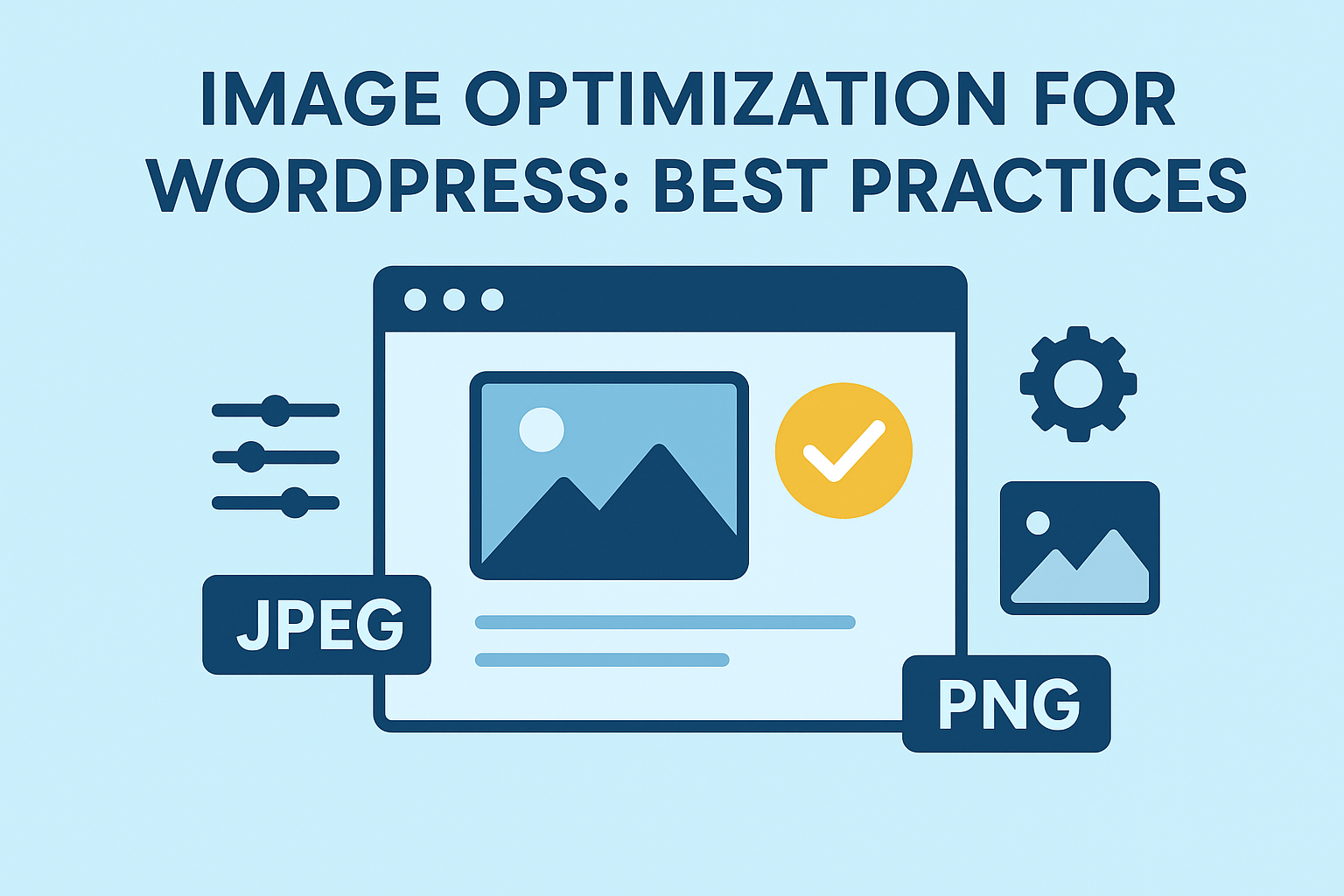
WordPress has dominated the content management system (CMS) market for over a decade. With a staggering market share exceeding 40% of all websites globally, it's no surprise that the WordPress remain the number 1 platform and is regarded as the gold standard for website development. But with the rapid evolution of technology, emerging competitors, and shifting user preferences, the question arises: will WordPress remain the #1 platform in the future? To explore this, we'll dive deep into WordPress's current dominance, its key strengths, potential challenges, and future prospects.
The Rise of WordPress: A Brief Overview
Launched in 2003, WordPress began as a simple blogging platform. Over time, it evolved into a fully-fledged CMS, allowing users to build anything from personal blogs to complex e-commerce sites. Its open-source nature attracted a community of developers, leading to the creation of thousands of themes, plugins, and extensions that significantly enhanced its functionality.
Today, WordPress powers websites for businesses, governments, educational institutions, and individuals. Giants like The New York Times, TechCrunch, and BBC America leverage WordPress for their online presence. The platform's versatility and user-friendly approach have made it a go-to solution for beginners and experts alike.
Why Does WordPress Remain the Number 1 Platform Today
Several factors have contributed to WordPress's current dominance. Let's explore these key aspects:
1. Open-Source Flexibility
WordPress's open-source model allows developers to access and modify its core code. This flexibility enables limitless customization, making WordPress adaptable to virtually any use case. Whether you're building a portfolio, an e-commerce store, or a news site, WordPress can cater to your needs.
2. Extensive Plugin Ecosystem
With over 60,000 plugins available, WordPress offers unparalleled extensibility. From SEO tools like Yoast to e-commerce solutions like WooCommerce, users can add features without extensive coding knowledge. This plugin ecosystem is a cornerstone of WordPress's success.
3. User-Friendliness
WordPress's intuitive dashboard and editor make it accessible for non-technical users. The introduction of the Gutenberg block editor further simplified content creation by allowing users to build pages visually with drag-and-drop functionality.
4. Strong Community Support
WordPress's vast community of developers, designers, and enthusiasts provides abundant resources, forums, and tutorials. For any problem or query, solutions are often just a Google search away.
5. Scalability and SEO Capabilities
WordPress websites can scale from small blogs to enterprise-level platforms. Its inherent SEO structure, combined with plugins like Rank Math or All in One SEO, allows users to optimize their sites effectively.
Challenges Facing WordPress
Despite its dominance, WordPress is not without challenges. As the digital landscape evolves, several factors threaten its position:
1. Security Concerns
As the most popular CMS, WordPress is a prime target for hackers. Vulnerabilities in outdated plugins, themes, or core software can leave sites exposed. While regular updates and security plugins help mitigate risks, the sheer number of attacks remains a concern.
2. Performance Issues
Out-of-the-box WordPress can be slow, especially when loaded with multiple plugins or poorly optimized themes. Performance optimization often requires technical expertise, which can deter non-technical users.
3. Complexity for Advanced Customization
While WordPress is beginner-friendly, advanced customization often demands knowledge of PHP, HTML, CSS, and JavaScript. This learning curve can drive some users to alternative platforms with simpler customization options.
4. Rise of Competitors
Platforms like Wix, Squarespace, and Webflow have gained traction by offering all-in-one solutions with user-friendly drag-and-drop interfaces. These competitors appeal to users seeking simplicity and minimal setup.
5. Dependence on Plugins
The heavy reliance on plugins for additional functionality can lead to compatibility issues, especially during updates. This dependence can result in a fragmented and sometimes frustrating user experience.
Emerging Trends and Their Impact on WordPress
To understand the future of WordPress, it's essential to examine key trends shaping the web development landscape:
1. Headless CMS and Decoupled Architecture
Headless CMS solutions, which separate the backend from the frontend, are gaining popularity. While WordPress can function as a headless CMS, newer platforms like Strapi and Contentful are designed specifically for this approach. These tools offer greater flexibility and performance, appealing to developers building modern web applications.
2. AI and Automation in web development
Artificial intelligence is transforming website design and development. Tools like Wix's ADI (Artificial Design Intelligence) can create websites automatically, bypassing the need for manual configuration. The future of WordPress will need to integrate AI-driven tools to stay competitive in this arena.
3. Progressive Web Apps (PWAs)
PWAs offer app-like experiences directly through web browsers, and their popularity is growing. While WordPress supports PWA development, its implementation can be more straightforward on platforms tailored for modern web technologies.
4. Mobile-First Development
As mobile traffic surpasses desktop usage, mobile optimization is paramount. Although WordPress themes often include responsive design, platforms like Webflow provide more precise control over mobile layouts.
5. Sustainability and Green Hosting
Environmental concerns are influencing consumer choices. Platforms emphasizing energy-efficient hosting and minimal carbon footprints may attract eco-conscious users. WordPress will need to align with sustainable practices to remain appealing.
What the Future of WordPress Is Looking Like
WordPress is not resting on its laurels. The platform is evolving to address its shortcomings and embrace emerging trends. Here's how:
1. Gutenberg Editor Enhancements
The Gutenberg block editor is a step toward modernizing WordPress's content creation experience. With continuous updates, it aims to rival the design flexibility of competitors like Webflow.
2. Improved Security Measures
WordPress regularly updates its core software to address vulnerabilities. Additionally, initiatives like auto-updates for plugins and themes help users maintain secure websites.
3. Focus on Performance
Efforts like the performance-focused WordPress Performance Team aim to improve site speed and reduce resource usage. Initiatives include lazy loading images and optimizing JavaScript execution.
4. Embracing the Headless CMS Trend
WordPress supports REST APIs and GraphQL, enabling developers to use it as a headless CMS. This flexibility ensures WordPress can cater to modern web applications.
5. Collaboration with the Community
WordPress's open-source nature ensures ongoing collaboration with its vast community. Developers contribute code, share insights, and create innovations that keep the platform relevant.
Predictions for WordPress's Future
Given its strengths and ongoing efforts, WordPress is well-positioned to retain its dominance. However, its future hinges on several factors:
1. Adapting to Market Trends
WordPress must evolve to meet changing user expectations, such as seamless AI integration and support for advanced web technologies.
2. Maintaining Accessibility
As new tools and features are introduced, WordPress must remain accessible to non-technical users. Simplifying complex processes will be key to retaining its broad user base.
3. Strengthening Security
Addressing security concerns proactively will be crucial for maintaining trust among users and developers alike.
4. Competing with Niche Platforms
While WordPress excels as a general-purpose CMS, specialized platforms targeting specific industries or functionalities may pose challenges. WordPress will need to balance versatility with niche-specific features.
Will WordPress Remain #1?
The future of WordPress depends on its ability to innovate while staying true to its core values of flexibility and user-friendliness. Its vast ecosystem, strong community support, and adaptability give it a significant edge over competitors. However, emerging technologies and changing user preferences will test its resilience.
If WordPress continues to prioritize performance, security, and modern features, it's likely to remain the leading CMS for years to come. While competitors will challenge its dominance, WordPress's rich history and robust foundation make it a formidable player in the web development landscape.
In conclusion, while nothing in technology is guaranteed, WordPress's ability to evolve and meet user needs suggests that it will maintain its status as the #1 platform well into the future.
============================================
Get LIFETIME ACCESS to "My Private Prompt Library": https://buymeacoffee.com/mtspromptslibrary/e/236177
By-pass All Content Detectors (Guaranteed Results): https://stealthwriter.ai/?linkId=lp_731486&sourceId=muhammad-talha&tenantId=stealthwriterLooking for a custom GPT? Or SEO services for your website? Book Consultation with me
📧 Stay Updated
Get the latest web development tips and insights delivered to your inbox.




